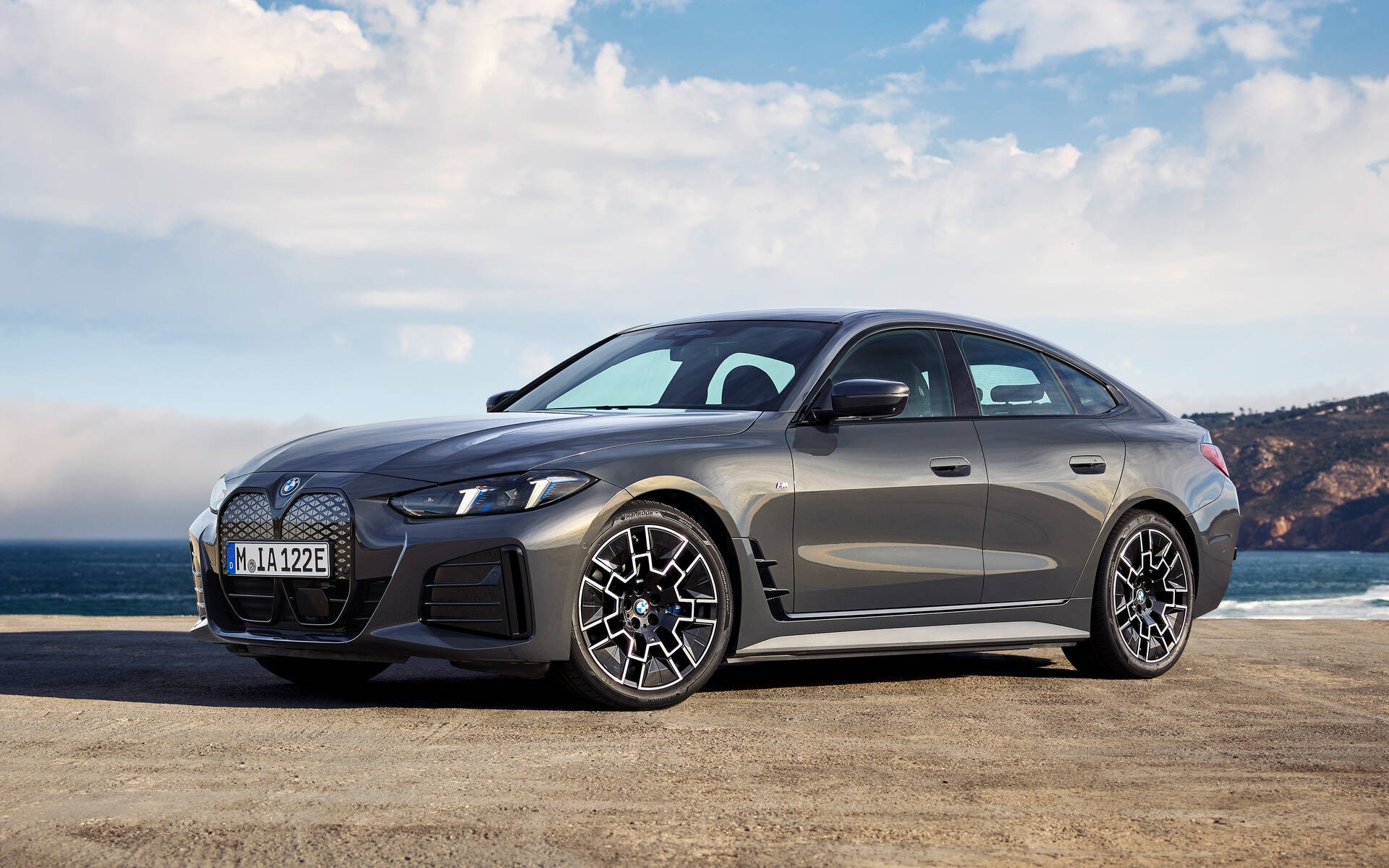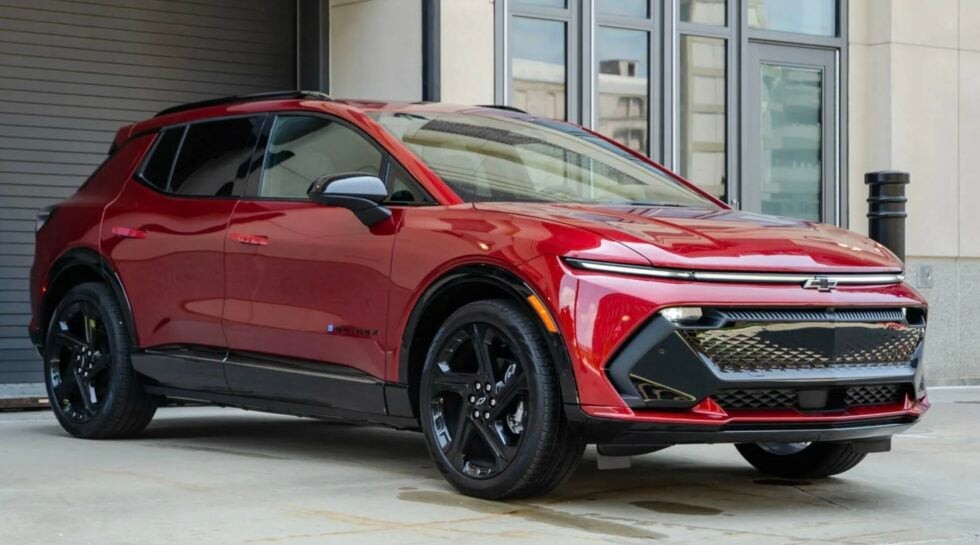Choosing an electric vehicle (EV) is a significant decision for modern drivers, and it goes beyond just environmental concerns. While reducing your carbon footprint is a strong motivator, the long-term dependability of your EV is equally crucial. Particularly as electric vehicle technology matures, repair costs outside of warranty can be substantial and are increasingly making headlines. For those prioritizing peace of mind alongside eco-consciousness, understanding EV reliability is paramount. Fortunately, Consumer Reports, a trusted source for vehicle ratings, has released its data, giving us a clearer picture of the Most Reliable Electric Cars expected in 2025.
 2025 BMW i4: One of the most reliable electric cars according to Consumer Reports.
2025 BMW i4: One of the most reliable electric cars according to Consumer Reports.
According to Consumer Reports’ evaluations, here are the top 10 most reliable EVs for 2025, combining reliability scores with overall vehicle performance ratings:
| Make | Model | Reliability Score | Overall CR Score | Base MSRP |
|---|---|---|---|---|
| BMW | i4 | 82 | 89 | $52,200 – $69,700 |
| Nissan | Ariya | 58 | 68 | $43,190 – $60,190 |
| Lexus | RZ | 57 | 67 | $58,500 – $64,000 |
| Kia | Niro EV | 54 | 70 | $39,600 – $44,600 |
| Audi | Q4 e-tron | 54 | 72 | $49,800 – $58,200 |
| Hyundai | IONIQ 6 | 50 | 76 | $37,500 – $53,650 |
| Porsche | Taycan | 49 | 78 | $90,900 – $197,500 |
| Genesis | GV60 | 47 | 74 | $53,800 – $71,350 |
| Ford | Mustang Mach-E | 43 | 68 | $42,600 – $61,600 |
| Tesla | Model 3 | 42 | 69 | $40,240 – $53,240 |
This table provides a quick overview, but Consumer Reports offers a more comprehensive reliability ranking for a wider range of electric vehicles. Examining the complete list can offer further insights when considering your next EV purchase.
 Consumer Reports electric vehicle reliability ratings across various makes and models.
Consumer Reports electric vehicle reliability ratings across various makes and models.
Here is the complete list of EV reliability ratings from Consumer Reports, allowing for a deeper dive into the dependability landscape of electric vehicles:
| Make | Model | Consumer Reports Reliability Score |
|---|---|---|
| Lexus | RZ | 57 |
| Hyundai | IONIQ 6 | 50 |
| Porsche | Taycan | 49 |
| Nissan | Ariya | 58 |
| BMW | i4 | 82 |
| BMW | iX | 29 |
| Kia | Niro EV | 54 |
| Kia | EV6 | 31 |
| Audi | Q4 e-tron | 54 |
| Toyota | bZ4X | 38 |
| Tesla | Model 3 | 42 |
| Genesis | GV60 | 47 |
| Ford | Mustang Mach-E | 43 |
| Genesis | GV70 Electric | 35 |
| Tesla | Model Y | 41 |
| Audi | Q8 e-tron | 26 |
| Ford | F-150 Lightning | 28 |
| Hyundai | IONIQ 5 | 30 |
| Lucid | Air | 7 |
| Jaguar | I-PACE | 30 |
| Honda | Prologue | 30 |
| Tesla | Model S | 35 |
| Volkswagen | ID.4 | 29 |
| Tesla | Model X | 24 |
| Mercedes-Benz | EQS SUV | 30 |
| Rivian | R1S | 9 |
| Mercedes-Benz | EQE SUV | 30 |
| Mercedes-Benz | EQE | 30 |
| Rivian | R1T | 20 |
| Mercedes-Benz | EQS | 30 |
| Polestar | Polestar 2 | 25 |
| Kia | EV9 | 42 |
| Subaru | Solterra | 38 |
| Chevrolet | Blazer EV | 5 |
CarEdge’s Perspective on EV Reliability
At CarEdge, we understand the excitement and nuances of the EV market. While we respect Consumer Reports’ data-driven approach to reliability, our team of EV enthusiasts, including Tesla and Hyundai IONIQ 5 owners, believes it’s crucial to consider these ratings within a broader context. In our view, focusing solely on reliability scores might lead you to overlook other vital aspects of EV ownership, such as charging speed, range, and overall driving experience. Some of the top-rated EVs in terms of reliability, according to Consumer Reports, might present compromises in these other key areas.
For instance, consider the Lexus RZ, Nissan Ariya, Audi Q4 e-tron, and Kia Niro EV, all appearing high on the reliability list. While dependable, these models, in some instances, face criticism for slower charging speeds and more limited range compared to competitors. The Lexus RZ, sharing its powertrain with the Toyota bZ4X and Subaru Solterra, demonstrated a real-world range of just 176 miles in an Out of Spec test at 70 mph. This is less than ideal when many EVs now comfortably exceed 200 miles on a charge during highway driving.
However, it’s not all compromise. The Hyundai IONIQ 6, Tesla Model 3, Kia EV6, and BMW’s electric lineup stand out as strong contenders. These models strike a better balance, offering not only solid reliability scores but also more competitive range and faster charging capabilities, making them well-rounded choices in the most reliable electric car category.
Should You Buy an EV in 2025?
If you are committed to long-term vehicle ownership, embracing electric power for fuel savings and reduced emissions, then 2025 is an opportune time to make the switch. However, if you anticipate needing to upgrade your vehicle within a few years, leasing an EV might be a more strategic approach. The used EV market is still experiencing volatility in resale values, a trend expected to continue as newer, more advanced EVs enter the market. Leasing can mitigate risks associated with depreciation in this evolving landscape.
Ultimately, choosing the most reliable electric car involves weighing various factors. Consumer Reports provides valuable reliability data, but it’s essential to also consider your driving needs, desired range, charging preferences, and long-term ownership plans to make the best decision for your individual circumstances.
